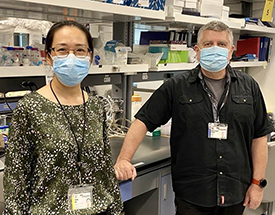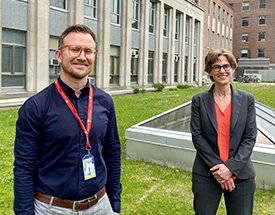
Does the COVID-19 vaccine work for people living with HIV?
RI-MUHC scientist Dr. Cecilia Costiniuk is co-principal investigator in a new national study that hopes to answer critical questions around the...

How does the hunger-suppressing hormone leptin cross the blood-brain barrier?
Specialized cells called pericytes play a key role, reveals new work from researchers at the RI-MUHC

Recurrent miscarriage: what if the cause is genetic?
Next-generation gene sequencing may provide answers for some women dealing with recurrent pregnancy loss and prevent further miscarriages

New study paves the way to novel treatment for Triple Negative Breast Cancer
A team of researchers at the RI-MUHC found two cellular pathways involved in TNBC tumour development...

RI-MUHC study explores how to overcome the resistance of bladder tumours to radiation therapy
Work published in Nature Communications demonstrates a...
Tracking the emerging COVID-19 variants of concern in Canada
RI-MUHC researcher Ciriaco Piccirillo takes a leading role in Canada’s new Coronavirus Variants Rapid Response Network

When will I fully recover from surgery? New study highlights patients’ perspectives on postoperative recovery
The meaning of recovery goes beyond traditional clinical parameters

New research looks at vaccination efficacy and hemodialysis
Dialysis patients do not develop adequate antibodies with one dose of SARS-CoV-2 vaccine

Evaluation of meningitis risk in infants drives new RI-MUHC study
Results published in JAMA Network Open may change practice for young infants with fever

The Gnotobiotic Research Platform is open for business
The RI-MUHC and McGill University form a hub to integrate microbiome research activities
